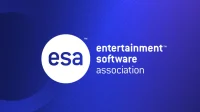Overview
- Tariffs are expected to increase the cost of gaming, potentially affecting retail prices.
- ESA spokesperson Aubrey Quinn described these tariffs as “real and detrimental”to the gaming sector.
- The ESA is working to engage with government officials to reduce the financial impact on the gaming industry.
Aubrey Quinn, representing the Entertainment Software Association (ESA), has expressed serious concerns regarding recent tariff implementations in the United States, predicting that they will significantly raise the overall cost of gaming. This is already reflected in the delays associated with pre-orders for the upcoming Nintendo Switch 2, alongside preparations from retailers for inevitable price increases across various game titles.
The gaming community has been wary of tariff repercussions for some time, particularly those announced by former President Donald Trump. In January, industry experts, including Mat Piscatella, forecasted that these tariffs would not just inflate the costs for consumers but would also have detrimental impacts on game studios, especially impacting high-demand items like the Nintendo Switch 2. Early indications seem to confirm these predictions.
According to a recent interview with IGN, Aubrey Quinn emphasized that the effects of the tariffs will be “real and detrimental.”The ESA aims to collaborate with government entities to explore alternatives that shield the gaming industry and its consumers from excessive financial strain. However, the persistent nature of these tariffs suggests that gaming may face broader cost increases moving forward.
Impact of Tariffs on the Gaming Industry





Quinn further elaborated on the correlation between increasing costs and the overall future trajectory of the gaming industry. She pointed out that a decline in profits for leading gaming companies could precipitate reduced workforce numbers and fewer resources allocated to research and development. Such shifts could fundamentally alter the gaming landscape, including the transition towards an all-digital future. Concerns have already arisen regarding how major platforms like Nintendo, PlayStation, and Xbox might navigate away from physical media if tariffs continue to drive costs higher.
Given the influx of new officials in the current administration, Quinn highlighted the ESA’s commitment to fostering productive dialogues with these individuals to prevent further harm to the gaming sector. She also stated that tariff consequences span various aspects of life beyond gaming, encompassing essentials from food to electronics. Major American companies that depend on overseas products for their manufacturing processes will also feel the pinch. Quinn urged gamers to reach out to their representatives, emphasizing the importance of making their voices heard in the current political landscape.


